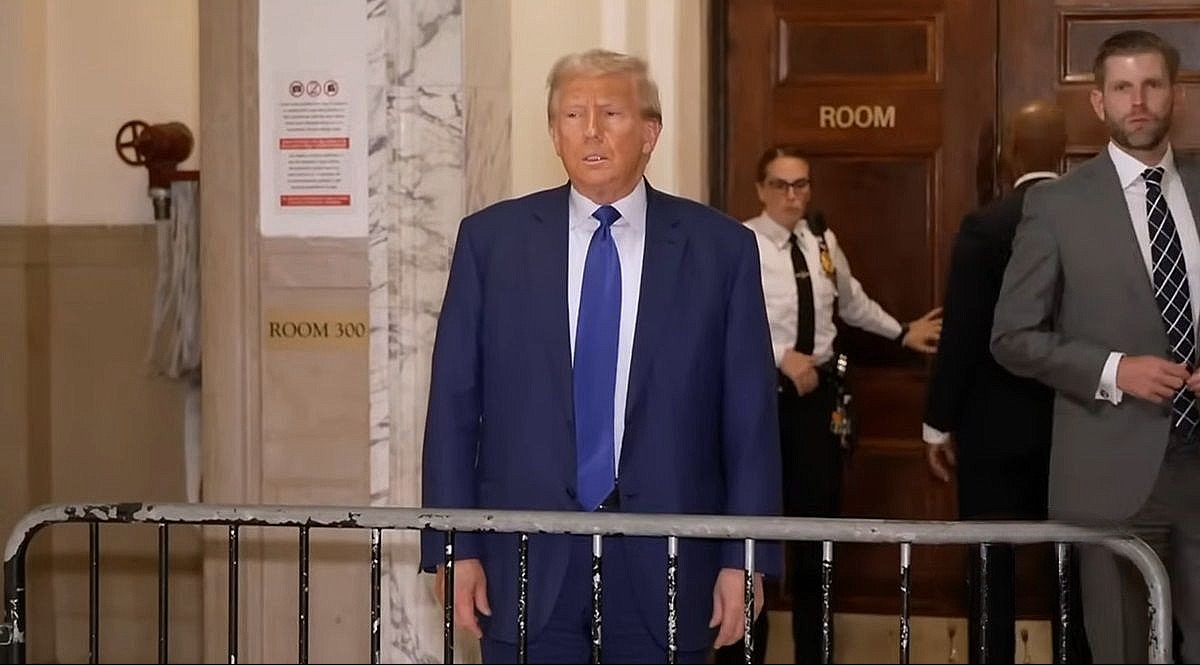In his highly anticipated testimony, former US President Donald Trump took the stand in a Manhattan Court, shedding light on his role and knowledge concerning the accounting practices of the Trump Organization. The former president faces accusations of fabricating and inflating his financial assets while defrauding the US tax system. Trump is alleged to have inflated his assets when seeking favorable loans and deflated them when paying taxes, raising questions about the integrity of his financial dealings.
During the testimony, Trump’s responses provided a glimpse into his perspective on his financial statements. When asked about his knowledge of these documents, he responded, “I assume so. I have people. I pay them a lot of money; they’re accountants. I assume they keep good records.” This statement underscores Trump’s reliance on his financial advisors and accountants in managing his financial matters.
However, the courtroom proceedings were marked by several instances of Trump going on passionate rants, referring to the case as a “Witch Hunt.” The former president continuously emphasized his wealth, claiming a net worth of at least 2.5 billion dollars or potentially more. He argued that multiple financial institutions had misjudged his true financial status. In addition, he launched verbal attacks against New York Attorney General Letitia James and the presiding judge, attempting to paint the case as a politically motivated pursuit.
During cross-examination by Assistant District Attorney Wallace, Trump swiftly passed the blame to his accountants, suggesting that he pays them handsomely to handle his taxes and prepare his financial statements. Essentially, he argued that if any discrepancies exist, they are the ones at fault, despite confirming that his signatures appeared on the loans and financial statements submitted to secure additional funds for his organization.
At stake in this trial is a substantial sum of money and the reputation of the Trump Organization. The trial is a bench trial, meaning that the verdict will be decided solely by the judge. This arrangement came about as a result of an oversight by the Trump legal team, which failed to check a box requesting a jury trial when filing the case. The Manhattan Attorney General is seeking a minimum of $250 million in restitution from the Trump Organization, although many experts believe this figure could potentially rise to as high as 1 billion dollars or more.
If the judge rules against Trump, an appeal is likely to follow. However, the appeals process is expected to move swiftly, as previous attempts by Trump to delay or defer legal proceedings until after elections have been denied. The courts have cited his right to a speedy trial, a right that Trump is keen to avoid, as he presumably harbors hopes of winning the 2024 presidential election. A significant financial judgment could place the Trump Organization in a precarious financial situation, considering that a substantial portion of the money collected from supporters for his social projects through Special Purpose Acquisition Companies (SPAC) may have to be returned.
As the courtroom drama unfolds, it is essential to consider the broader implications of this trial. While many are closely watching the legal proceedings, Trump’s political ambitions cannot be overlooked. Recent polls indicate that he is leading in a few states over the current President, Joe Biden. However, it is crucial to remember that polls are inherently subjective and can be tailored to fit various narratives. Despite this, the possibility of Trump making a return to the political arena is enough to buoy his spirits.
Throughout the courtroom proceedings, Trump was quick to label the case a “Witch Hunt.” This narrative, often employed by Trump in response to legal challenges during his presidency, is not unique to this trial. It serves as a rallying cry for his supporters, emphasizing that the legal actions against him are politically motivated rather than rooted in genuine concerns about financial impropriety.
While the “Witch Hunt” label may resonate with some, it is essential to maintain a balanced perspective. Legal investigations and trials should be based on evidence and due process, rather than political vendettas. The court’s responsibility is to establish the truth, and it is paramount that justice is served without bias.
While the trial proceedings continue, it is impossible to ignore the political implications of this case. Donald Trump remains a polarizing figure in American politics, and his potential return to the political arena is a topic of significant interest.
The 2024 presidential election looms large on the horizon, and it is evident that Trump’s aspirations are not limited to legal battles. A successful run in the election could potentially disrupt the legal proceedings against him, as his status as a sitting president might afford him some degree of legal protection. The courtroom drama is far from over, and its outcome will have far-reaching consequences, not only for Trump and his organization but also for the broader American political and financial landscape.









